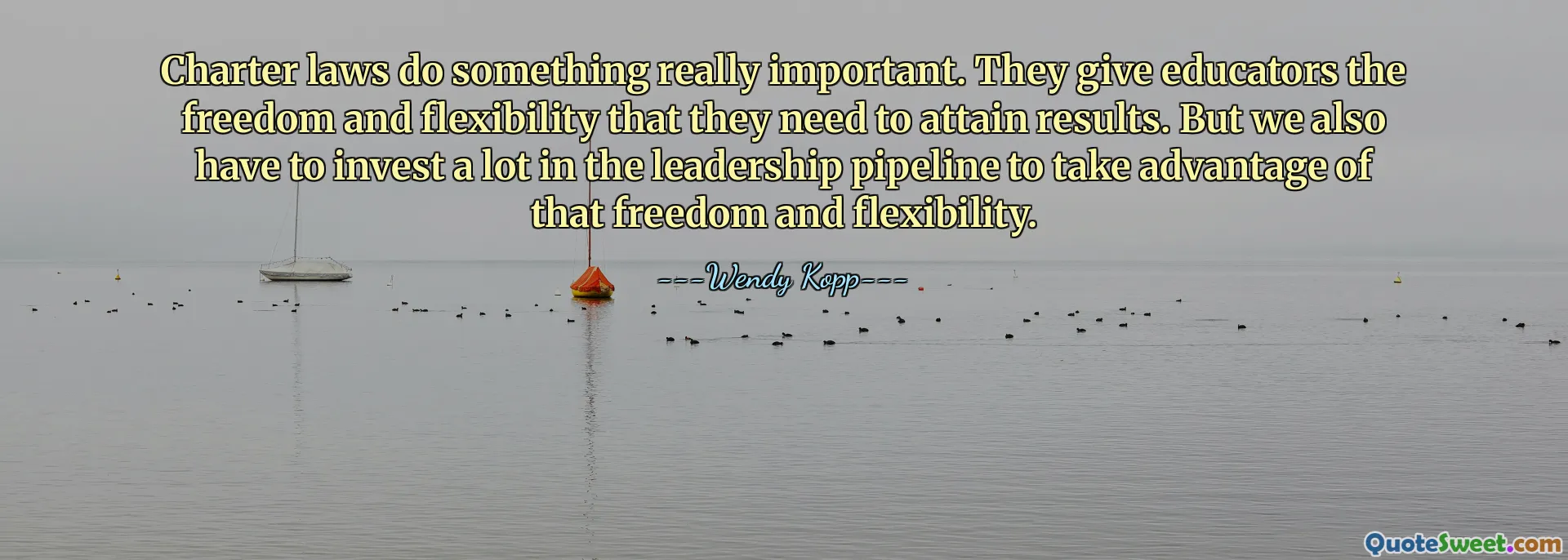
Charter laws do something really important. They give educators the freedom and flexibility that they need to attain results. But we also have to invest a lot in the leadership pipeline to take advantage of that freedom and flexibility.
Wendy Kopp highlights a crucial balance in educational reform. Charter laws indeed create a framework that promotes autonomy, freeing educators from rigid bureaucratic structures that often stifle innovation and responsiveness. This freedom allows teachers and administrators to tailor their approaches, experiment with new methods, and adapt to the specific contexts and needs of their students. However, Kopp wisely points out that autonomy alone is insufficient. The effectiveness of this freedom hinges on committing significant resources to cultivating strong educational leaders.
Investing in the leadership pipeline means nurturing principals, administrators, and potential leaders who can navigate the newfound autonomy wisely. Effective leadership helps in aligning flexible strategies to measurable outcomes and ensuring that the freedoms granted do not lead to fragmentation but rather constructive innovation and accountability. Leadership development becomes the linchpin that transforms policy possibilities into tangible improvements in student achievement.
This quote underscores the dual necessity of freedom and strategic support within educational systems. It urges policymakers and stakeholders not to see autonomy in isolation but as a component of a broader ecosystem. Without leadership that understands how to harness this flexibility, the potential benefits of charter laws may remain unrealized. In this light, Kopp’s observation invites a holistic approach that prioritizes both enabling educators and preparing capable leaders who can guide the educational community towards meaningful progress.











